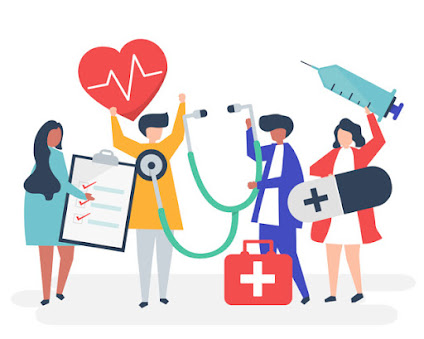Healthcare EDI Market Is Witnessing Massive Growth As Siemens Healthineers Partners With Geisinger To Drive Digital Health Collaborations Including AI-Enabled Applications
Healthcare
EDI or Electronic Data Interchange was conceptualized to build a database that
would enable shared access to health information from multiple locations. It
makes it possible to exchange the same data between the different entities
involved in the care of patients such as doctors, nurses, and other health care
providers. In essence, EDI breaks down the physical and financial boundaries
that are set between the various parties involved in a health care
organization. The adoption of healthcare EDI solutions has witnessed massive
growth in developed economies such as the U.S. and Canada. This is due to the
fact that there is high demand for innovative IT solutions to streamline
workflows combined with increasing regulatory requirements related to patient
safety.
As time
changes, healthcare organizations are adapting to newer technologies, in order
to cater to changing demands. Big data adoption is one of those advanced
technologies that has witnessed rising adoption among healthcare companies. Big
tech companies are offering novel big data solutions to cater to the demands of
healthcare organizations. Recently, in December 2020, Amazon Web Services (AWS)
launched Amazon HealthLake, a HIPAA-eligible service that aims to support
interoperability standards and boost the use of big data analytics in
healthcare. Such factors can stimulate growth of the healthcare
EDI market in the near future.
Despite
offering numerous advantages, there are concerns regarding data privacy and
security. Furthermore, the implementation cost of EDI is significantly high,
which could limit growth of the healthcare EDI market. However, many healthcare
organizations have found a solution for these adversities such as outsourcing
it, which could present lucrative growth opportunities for market players.
Healthcare
EDI allows for greater sharing of information that could help in the prevention
and treatment of diseases. This is the biggest advantage of EDI over other
traditional modes of patient information exchange like direct patient records
(DPR). EDI will have to support all types of data interchange so it is
important to establish a standard format. These healthcare organizations and
healthcare providers are focused on controlling healthcare costs. Healthcare
electronic data interchange (HDI) can help organizations to transmit data back
and forth using standardized formats. EDI also improves productivity, which
enables a higher level of efficiency, accuracy, and speed. Such advantages can
boost growth of the healthcare EDI market.
Recently,
in June 2020, Siemens Healthineers AG partnered with Geisinger to drive digital
health collaborations including AI-enabled applications




Comments
Post a Comment